A few days ago Ben wrote about the humorous tale of a man in Canada boarding the wrong flight 1,800 miles in the wrong direction, and ending up at an airport that didn’t even sound like the town he was supposed to fly to. Ben shared a map of the airports, and as you may have noticed, each of the three airports start with the letter Y, despite two of the names of the airports not having the letter Y in them:
- Yellowknife (YZF)
- Iqaluit (YFB)
- Inuvik (YEV)
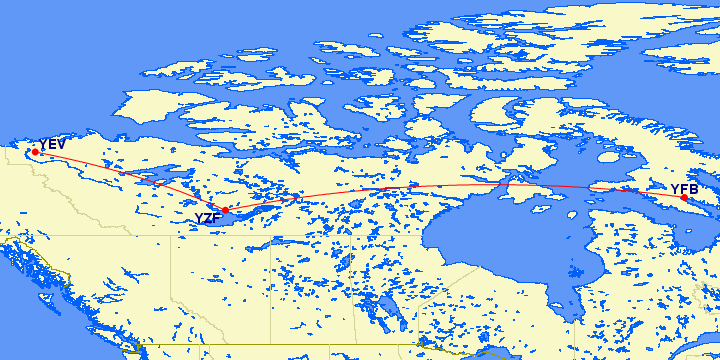
Now when you think about other, more well known Canadian airports, they also start with the letter Y, despite not having the letter Y in their name:
- Vancouver (YVR)
- Toronto (YYZ)
- Montreal (YUL)
Confusing, huh?
Airports around the world have commonly used three letter codes, which in some cases are an abbreviation, or the first three letters of the name of the city it services (such as SYD for Sydney, or SFO for San Francisco). Sometimes the abbreviation is for the name of the airport, whether the airport is named after a famous figure (like JFK for New York John F Kennedy), or the area/suburb the airport is actually located in (such as LTN for London Luton).
Ben wrote an article a few years back about a neat website that shows the origin of airport codes, which I would recommend checking out if you’ve ever wondered why a particular airport has a particular code (if it’s not an obvious abbreviation).
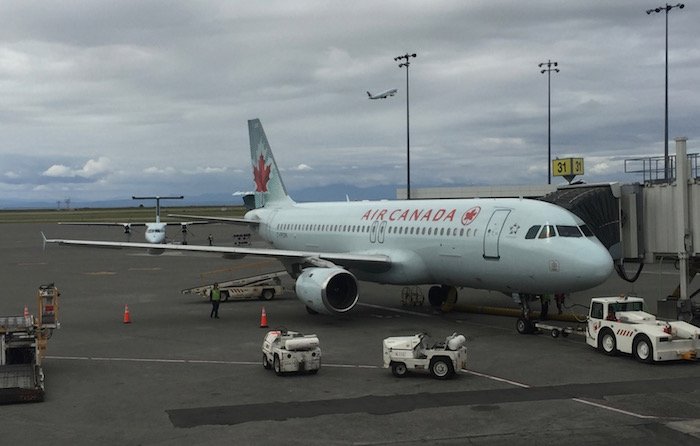
So what is Canada’s obsession with the letter Y?
From what I can understand, prior to the establishment of IATA, each Canadian airport originally had only a two letter code relating
Now there are a few different theories about exactly how the ‘2 letters’ came about, but the most common/popular one seems to be that back in the 1930s, each Canadian airport would often be designated an airport code based on the nearest weather measuring station’s code (or radio transmitter, or telegraph station – there’s a lot of debate about this). These were all two letters in length, and weren’t necessarily an obvious abbreviation of the location name.
Then the international aviation body IATA established that each airport should have a three letter code. Rather than each Canadian airport completely renaming their codes to match the name of the airport or city they served, they simply added a ‘Y’ to the front of each 2 letter code, with the Y indicating that each airport was Canadian. I believe airports were already adding a Y to the front of their 2 letter code, where there was a weather station attached to the airport – the Y indicating ‘Yes’ there is a weather station there.
There are some Canadian airports that do not begin with Y, but almost all do.
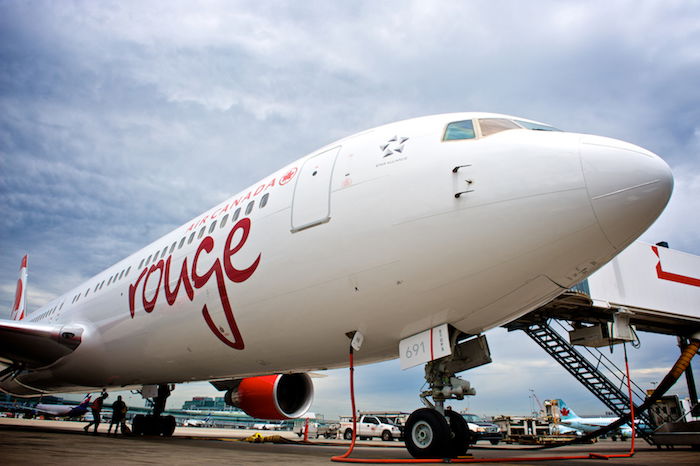
Four letter codes?
Most people refer to the three letter IATA code when referring to an airport code. But the International Civil Aviation Organisation (ICAO), actually has a four digit code for each airport around the world, and true #avgeeks often use the four digit code rather than the three digit one.
So where does the fourth digit come from? Well for many ICAO codes the first letter refers to a larger region, the second letter refers to a country within that larger region, and then the actual airport is a two letter abbreviation as the last two letters. For example, the four digit code for LHR is EGLL.
For larger countries where it may not be possible to list all airports with the combinations of only two letters (such as the USA), an identifying fourth digit will be added to the front of the three digit IATA codes, to enable all of the airports in that country to be given an ICAO code.
All US airports’ first ICAO letter is K, so LAX is actually KLAX, SFO is KSFO when using the four letter ICAO code. Canadian airports’ codes use the letter C, so YVR becomes CYVR. This means almost every Canadian airport has CY as the first two digits of their ICAO code.
Bottom line
It would probably be easier for everyone if Canada renamed its airports in a more logical three digit code, but the problem is that all the ‘good ones’ are already taken. For example, Toronto would surely want to be something like ‘TRT’ if it were renamed, but this is already taken by Tremonton, USA.
I’m pretty good with world airport codes but hopeless with Canadian ones – YVR is about the only one I can remember!
How do you remember Canadian airport codes?
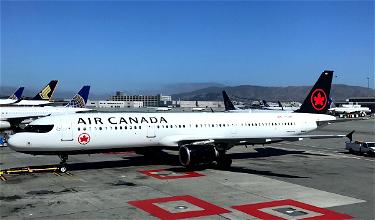

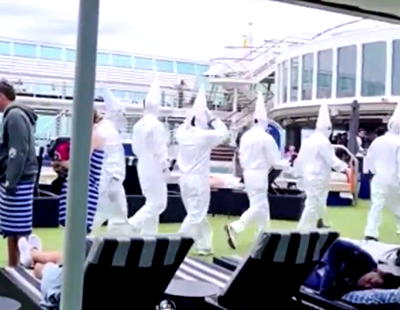

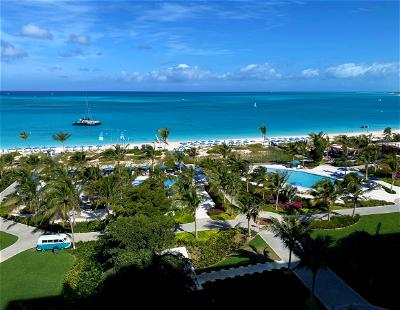
I was a travel student. I was aware that all the airports in Canada were prefaced by the letter, ‘Y.’ However, I did not know the logic behind it.
But where does the "Y" come from? Does it mean anything? And why are the airports up there not city abbreviations? Like Vancouver being "VAN" or Calgary "CAL" or "CGY"?
There's an old 80's Christmas movie called "Scrooge" (Bill Murray's version of A Christmas Carol). In the movie he was a TV Exec that ran a commercial saying, "ITV; Yule Love it!" Montreal is YUL and I always think of that...that or the USPS ran a commercial saying, "We deliver for Yule!" one Christmas and I think of a fella in the blue garb going to Montreal. Full disclosure - I am an educator so it's my job to come up with crazy tricks to remember useless junk.
@ James ---> In a reply to Jason (not me!), you wrote:
"@ Jason – I’m only suggesting Canadian airport codes are harder to remember than other countries airport codes because they are less of an abbreviation of the location or name (with only 2 letters to use), given the mandatory Y."
I'm confused. How is it any harder to remember (e.g.) YVR or YUL or YYZ, for Vancouver, Montréal, and Toronto than remembering MCO...
@ James ---> In a reply to Jason (not me!), you wrote:
"@ Jason – I’m only suggesting Canadian airport codes are harder to remember than other countries airport codes because they are less of an abbreviation of the location or name (with only 2 letters to use), given the mandatory Y."
I'm confused. How is it any harder to remember (e.g.) YVR or YUL or YYZ, for Vancouver, Montréal, and Toronto than remembering MCO is Orlando, MCI is Kansas City, and BNA is Nashville? Sure, some airport codes (PHX, SFO, DFW) are closer to the name of the city they serve; others are closer to the airport name (LHR for London-Heathrow; LGW for London-Gatwick; LCY for London-City). But in the long run, you just memorize the code: IAD for Washington; ORD for Chicago O'Hare; EWR for Newark; etc., etc.
@James I love reading your articles, and find the content you produce to be continually informative and entertaining. I think one of the best parts of this blog is that it brings together the brightest avgeek minds from around the world to strengthen our collective knowledge, especially on topics the authors themselves may not be an expert on.
I look forward to reading more, James!
Why do people take the time and complain about a article? I thought it was interesting. I always wonder why Canada is so confusing.
James thank you for answering a question that has been bugging me for the past 40 years. By the way for those wondering about YYZ, seems YZ was the two letter code for the station in Malton, where the airport is situated. As for Sean M. and his fellow haters, why can't you just engage in polite and respectful discussion. If you have something to say about facts on this blog, why can't you just...
James thank you for answering a question that has been bugging me for the past 40 years. By the way for those wondering about YYZ, seems YZ was the two letter code for the station in Malton, where the airport is situated. As for Sean M. and his fellow haters, why can't you just engage in polite and respectful discussion. If you have something to say about facts on this blog, why can't you just point these out and put your point of view forward in a civilised manner. You are so pathetic it's unreal. Didn't your parents teach you anything? Obviously not. And that's probably where you learned your objectionable behaviour in the first place. I actually pity people like you, you must lead a very lonely life (unsurprisingly). If you're so clever, why don't you go and start your own blog and see how successful you are with it.
It's related to how "Canada" first got its name. The people discussing it said "It should have a 'C', eh? And an 'N', eh? And a 'D', eh?"
Thanks James for writing about an interesting topic. With due to respect to all people who are criticizing; it is very easy to criticize and find errors! Could you be nice and share what you think are the facts? That way you are helping everyone interested in this topic. Criticism alone won't help!
Everyone complaining, please go away and read another blog, preferably one you pay for which would then give you a solid reason to complain.
K-WOW.....
What a bunch of hateful people, making comments.
It's very simple. Since some of you are "experts" i.e. critical of everything.
Great Idea!
Read something else.
"If you don't have anything good to say, don't say anything"
Without a reputable source, I call BS in saying that the Y came from "yes".
And for this Lucky did a highly public search for new writer....
Early Canadian airports actually broadcast, in morse code, their two letter code to be used in direction finding. Some morse codes don’t work, for example TO in morse is Dash, Dash Dash, Dash. How about Montreal? Well M is Dash Dash, O is Dash Dash Dash, Q is Dash Dash Dot Dash. To many dashed dashes!
Oh and the metropolitan codes that came along much later are YTO for Toronto and YMQ for Montreal. Metro...
Early Canadian airports actually broadcast, in morse code, their two letter code to be used in direction finding. Some morse codes don’t work, for example TO in morse is Dash, Dash Dash, Dash. How about Montreal? Well M is Dash Dash, O is Dash Dash Dash, Q is Dash Dash Dot Dash. To many dashed dashes!
Oh and the metropolitan codes that came along much later are YTO for Toronto and YMQ for Montreal. Metro codes are used for communications purposes and for seeking flights from any of the cities airports.
If you're not familiar with canadian airport codes it just means you don't/didn't do many hidden city bookings ... ;)
There’s always been weirdness in aviation geography. Back in ancient times, flights from London to North Africa all left from Heathrow’s “European flights” terminal, not as you might have expected from the intercontinental terminal.
BA pilot Mark Vanhoenacker’s poetic book “Skyfaring” has a rather lovely chapter on Wayfinding and the 5-letter names marking waypoints, which is similarly intriguing. Eg: “On skymaps of the Tasman Sea, the triangles that denote the waypoints hanging like notes...
There’s always been weirdness in aviation geography. Back in ancient times, flights from London to North Africa all left from Heathrow’s “European flights” terminal, not as you might have expected from the intercontinental terminal.
BA pilot Mark Vanhoenacker’s poetic book “Skyfaring” has a rather lovely chapter on Wayfinding and the 5-letter names marking waypoints, which is similarly intriguing. Eg: “On skymaps of the Tasman Sea, the triangles that denote the waypoints hanging like notes on a musical staff arcing towards New Zealand are marked WALTZ, INGMA and TILDA, a reference to Australia’s unofficial anthem ‘Waltzing Matilda’”.
And usually the codes don't change, even when the name of the city does, eg, SGN for Saigon not Ho Chi Minh City, RGN for Rangoon not Yangon.
And LED for Saint Petersburg..
LED is used by Saint Petersburg, beucase the previous name of this city is "Leningrad".
@James: There might be missing something in the four-letter code "EGL"
@Echid - Now, how many people referred to the Rock band as 'Zed Zed Top'? :)
I was also surprised to see not one, but two airport codes for London International airport that are wrong. LTN and LHR - We all know it's YXU. So obvious. :) :)
Great article! I really appreciate James going to the trouble of researching this and sharing the results with us. I've again learned something new, one of the many reasons I like this blog so much.
I meant Ekaterinburg, with a U. Misspelled above.
Moreover, all Canadian ICAO codes don't begin with CY. Some small airports have CZ codes. However, CA-CX are unused
I'd be more interested as to why so many ICAO codes have the same final three letters:
DBBB (Cotonou), HSSS (Khartoum), UAAA (Almaty), UBBB (Baku), USSS (Ekaterinberg), VHHH (Hong Kong), WAAA (Makassar), WIII (Jakarta),WSSS (Singapore), ZGGG (Guangzhou), ZPPP (Kunming), ZSSS (Shanghai-Hongqiao), ZUUU (Chengdu), ZWWW (Ürümqi).
I can concur with what@EChid said about the codes entering into the lingo. I know Edmonton pretty proudly wears “YEG” as a hashtag and brand for the city as a whole, not just the airport. I don’t think that would have happened with an airport code if it were just a normal easy-to-remember one. The distinctiveness of the “Y” airport codes are being turned into a marketing and branding positive.
I agree with @Sean M. There are a lot of nitty-gritties involved in ICAO codes. The C and K regions (Canada and the mainland U.S.) are the ONLY places where prefixing the letter C/K to the IATA code gives the ICAO. Another example is Victoria Falls, Zimbabwe (ICAO: FVFA, IATA: VFA), but that is because the ICAO F region is used for most of Sub-Saharan Africa, and Zimbabwe's region code is FV. That's just a coincidence.
As others have pointed out, there are factual errors in this article. Particularly, when it comes to ICAO codes. The US & Canada are exceptions in that Canadian airports have a "C" added in front and mainland US airports have a "K" added in front. In the rest of the world, the first 2 letters of the ICAO code signifies the region. One country may be divided into multiple regions, for example, India is divided...
As others have pointed out, there are factual errors in this article. Particularly, when it comes to ICAO codes. The US & Canada are exceptions in that Canadian airports have a "C" added in front and mainland US airports have a "K" added in front. In the rest of the world, the first 2 letters of the ICAO code signifies the region. One country may be divided into multiple regions, for example, India is divided into VA, VI, VO and VE whereas, the UK is just EG. The US is actually divided into multiple regions - K1 thru K7 (I think from memory), but the airports are not coded with the region.
This Wikipedia article is a very good starting point for research, particularly for those who are not in the airline/aviation industry: https://en.wikipedia.org/wiki/ICAO_airport_code.
Hawaii and Alaska use the North Pacific ICAO prefix P.
Living in YUL I'd definitely appreciate if they changed it to MTL, which is what Montréal gets naturally shortened down to...but alas, it's unlikely. For a lot of Canadians, the Y-based codes are now in the vernicular, especially YYZ (which is the only time you'll catch a Canadian saying 'z' incorrectly, as in zee) and YVR.
@David - Couldn't agree more. I was a bit surprised and disappointed to see even someone as knowledgeable and experienced around this blog like @Sean M. isn't more helpful than just pointing out that there are "many factual inaccuracies in this article". If you're such an expert, how about you take this opportunity to educate the rest of us?
Good article James.. EVEN with ALL the inaccuracies that have been claimed not proven, since there were never really exposed (I just read it, never saw the 1st published version)
I have always wondered about this and glad to know that at the very least, there are some of us who still appreciate learning something new every day, instead of just bitching about what has been presented.
In case anyone forgot, this is NOT a dissertation going through it’s review!
@David preach! James keep up the good work! I love reading your articles for their European and Austrialian, and especially for the South East Asian ones :)
To the idiots still or deciding to hate...
...he's updated it now dingits. You can stop now.
To the critical commentators:
It's fine (even helpful) to be critical, long as you give him examples of his mistakes and suggestions. That's constructive criticism.
Insulting the author and not giving any actionable advice is just called being an asshole.
With all the fact-checking in the comments, I'm surprised that nobody has yet mentioned that the the photo at the top is SFO (or KSFO if you prefer), not a Canadian airport...
YQB is sort of easy to remember for Quebec city.
I see plenty of hates going around here...
What an interesting and informative article; it's rare I learn something new in the world of air travel, so kudos to @James for the lesson and for thinking of such a creative topic.
To the know-it-alls trolling this article...get a life.
I'll bet he's ghost writing for an American.
They're already confused by the metric system, our currency, postal codes, our use of the letter 'u', etc.
Might as well add this to the pile.
;-)
James, please inform yourself before you start babbling about stuff you clearly don’t know. You make Huff Post or buzzfeed articles look more legit than the posts you write.
Continuing James’s series of “Stuff I don’t understand myself and then quickly googled” articles.
“It would be easier for everyone if Canda renamed its airports”. Really?
@ Jason - I'm only suggesting Canadian airport codes are harder to remember than other countries airport codes because they are less of an abbreviation of the location or name (with only 2 letters to use), given the mandatory Y.
“All US airports’ first ICAO letter is K . . . ”
And Guam, a US territory, is PGUM.
Quick correction: Sydney is actually YQY..........oh, you mean the other Sydney. ;)
As to why they chose Y, I suspect it was because there were few other Y's taken.
@Sean M @Pietro what’s wrong with it?
I still don't understand why the y? Your title implies you would explain why but the content says it just added y. But why y? Is it linked to Canada somehow?
@ Sean M, @ Pietro - reading through this again I realised I had gotten my explanation mixed up - the Y was added to the weather station code, to reflect the presence of the airport, not the other way around. I've updated the post to reflect what is hopefully a clearer and more correct explanation. Apologies.
@ Jay - I've updated the post to reflect this - its from a weather station indicating 'Yes' there is an airport at the location.
i am super interested to read the more accurate version!
@Sean M couldn’t agree more. Most of his articles are confusing and wrong information.
Not all Canadian airports have a Y code though. Most of the two letter codes come from the codes that the railways would use when referring to a city in Morse code via a telegraph, e.g. HZ was Halifax, QB for Quebec City. When assigning codes for airports, Y (for Yes) was used for airports with a weather station and W was used for airports without a weather station.
@Sean M couldn't agree more. More research definitely needed before publishing. Quality of articles by James is falling.
In Europe (almost) every IATA code differs from the last 3 letters of the ICAO code.
(come to think of it, the 2nd & 3rd letters don't make much sense either!)
lol, just booked YYC (Calgary) the other day and was wondering the same exact thing! nice to have the background primer, thx!
Would Rush have to rename their song?
You have so many factual inaccuracies in this article that I don't even know where to begin correcting you. Please do some better research in the future (and not just google other inaccurate articles to begin with, which seems to be where you got most of your info).
ICAO codes are not by country but by region. Some countries are in one region (such as Canada) but this is th exception. Within the region that spans more than one country, each will have one (or more) second level codes. For example the UK is in region E with a country code of EG.
"All US airports' first ICAO letter is K . . . "
*Except for Alaska and Hawaii (P***) ;)